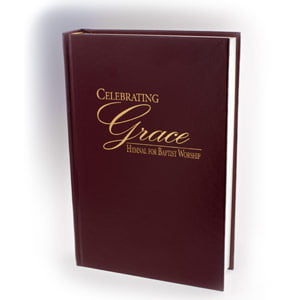It's stewardship month around Washington Plaza. Everything we are doing in October has been focused on what it means to think about our future through the lens of God's dreams. We've included special testimonies from church members about giving in the worship service, we've gathered in homes for meals to share ideas about what we'd like to see more of in the future, and we've heard sermons about what some of God's dreams are for us. In addition, we've included a thematic hymn to our worship as a response to the stewardship testimonies.
It was a delightful surprise discovering that the newest Baptist hymnal, Celebrating Grace, published just this year is a wonderful resource of music for every liturgical season. In the section on stewardship, I found this hymn, "Long Ago You Taught Your People" set to the familiar tune NETTLETON (you might know it as "Come Thou Fount of Every Blessing"). We've been singing every week now and its words are beginning to sink into all of us. Here are the words:
wonderful resource of music for every liturgical season. In the section on stewardship, I found this hymn, "Long Ago You Taught Your People" set to the familiar tune NETTLETON (you might know it as "Come Thou Fount of Every Blessing"). We've been singing every week now and its words are beginning to sink into all of us. Here are the words:
Long ago You taught Your People, "Part of what you reap is mine- from your cattle, bring the first born; tithe the crops of field and vine." Though beneath the law's restrictions we ar not compelled to live, as we reap our daily harvest, make us eager, Lord to give.
What a way of life You showed us through the Son You gladly gave; never snared by earthly treasure, buried in a borrowed grave-- yet to all He freely offered riches of the deepest kind; let us live with His example firmly fixed in heart and mind.
In the lifestyle of the Spirit giving has a central part; teach us Lord, this grace of sharing with a cheerful loving heart-- not a tiresome obligation, not a barren legal due, but an overflow of worship; all we have belongs to you!
I heard several comments on Sunday about how the words of this hymn spoke to them about what giving meant in a fresh way. "I've never thought about stewardship as 'overflow of worship'" someone remarked.
I just love it when worship comes together in such a way like this! Who knew that an old hymn with new words could be so inspiring?